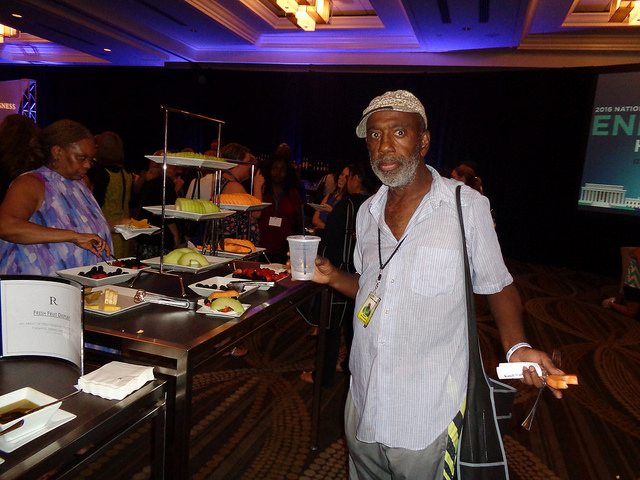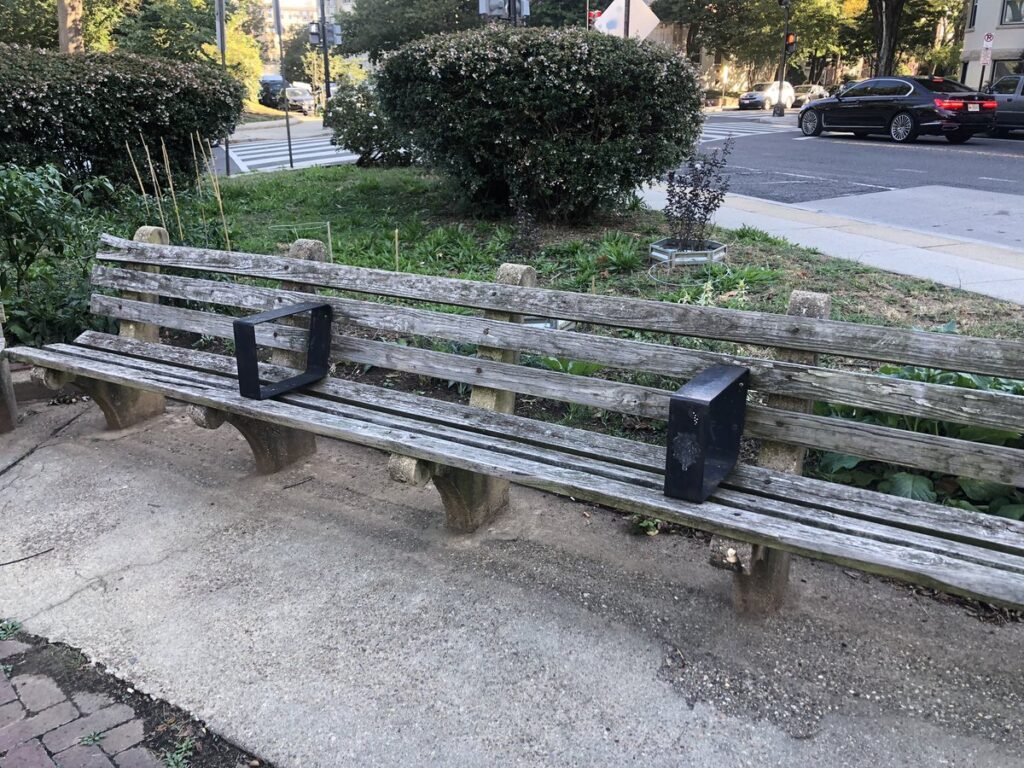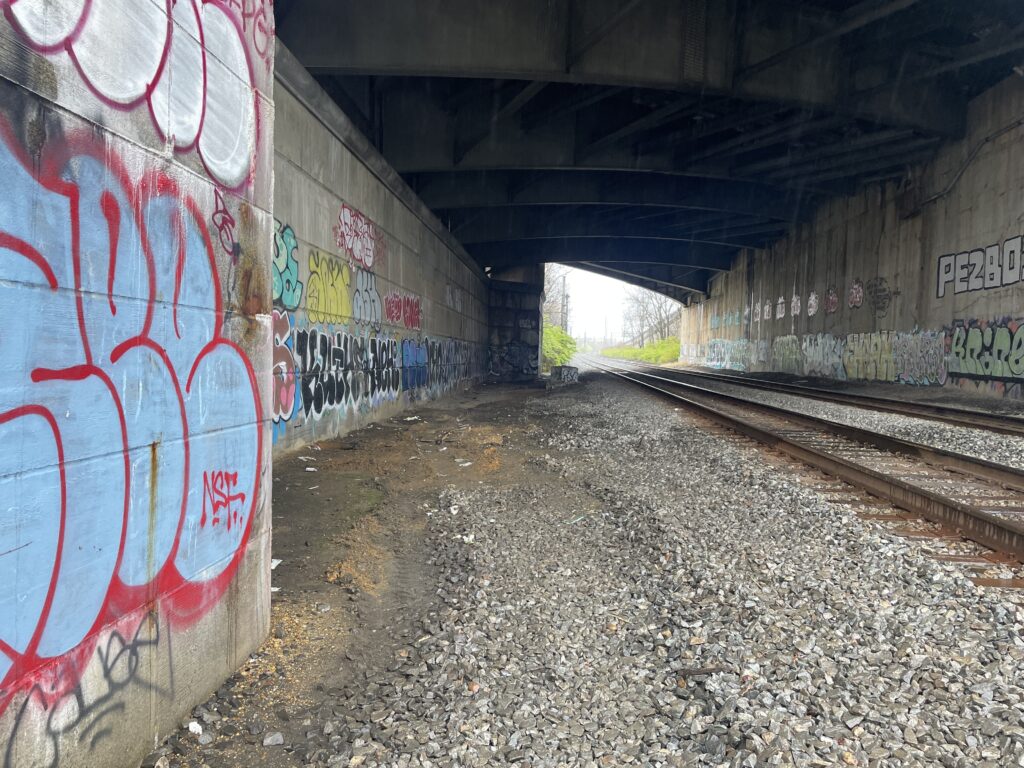“Love. I’ve dedicated this to all the people who I ever truly or really loved, plus those knowing my darkest hours are just before my dawn.”
—Kanell Washington, “My Moms and Twin“
Kanell Washington, also known as Kenneth Ward and “The Living Legend,” died of kidney failure on Oct. 20, 2016 at the age of 60. Kanell had been experiencing homelessness in the District, living on the streets or in unstable housing, for decades. But this never stopped him from realizing big parts of his dreams; he was an artist, a published writer, a singer, a poet, an advocate and a part of the Street Sense family.
“It was so amazing to have received your love, and I will follow you to the moon and stars above …”
—Kanell Washington, “My Moms and Twin“
Kanell’s Nov. 9 memorial service was filled with those who knew him for what he was: a “fighter,” “a delight,” “a joy,” someone compassionate toward children and, as was mentioned many times, a “hell of a cook.”
Street Sense Vendor/Artist Michael Craig stood behind the podium at the Church of the Epiphany, which was adorned with flowers and candles for the Wednesday afternoon memorial. It was there that he repeated, for the umpteenth time that day, a memory of how the flavor of his friend’s food would linger in his mouth for hours after eating. “It wasn’t just the food … it was the flavoring and the seasoning he would put inside your heart.”

Vendor/Artist Ken Martin, long-time friend of Kanell, called him an overcomer. “He always fought the good fight. He won many of them. Most of them. The last one, he didn’t win.”
“In the long run, you will be amazed by what you have achieved and you will be able to look back on how you overcame tremendous barriers.”
—Kanell Washington, “A Check Up from the Neck Up”
Kanell’s fight began years before the cold night of his late October passing. Struggling with deteriorating health and chronic homelessness for close to 30 years, Kanell’s plight was anything but easy. Up until roughly five to six weeks immediately preceding his death, when social workers at Street Sense helped him in transitioning, Kanell worked with the service provider Green Door Behavioral Health. “There were major gaps in his care” social worker Julie Turner told Street Sense in an interview. “Teams missing appointments, errors in paperwork. [Kanell] really ended up advocating for himself most of the time. He did everything right. The system didn’t.”
Turner’s case management intern, who also worked closely with Kanell, concurred. One of the most frustrating things was that they received a call the very day after his death saying that he was finally approved to receive a housing voucher: too little too late.

“It’s not right that he died due to being homeless for decades,” his later provider, Angela Owczarek from Miriam’s Kitchen, said. In spite of these gaps in care, however, Kanell persisted in being his own strongest advocate: scheduling appointments, calling repreatedly to follow-up on his needs and getting himself to the emergency room to demand care whenever other interventions failed him. Kanell had his own plans to make it out of homelessness and it certainly was not something he was going to let slip through the cracks. “I didn’t think I’d see Kanell’s name on this year’s list [of deceased homeless individuals],” said vendor/artist and friend Reginald Black. “I saw a fighter in him that I would have liked to have on my team any day.”
“I know now that I could not choose the circumstances that put me where I was. Although I wasn’t free physically, my mind was.”
—Kanell Washington, “A Check Up from the Neck Up”
Held in the chapel of a place steeped in Kanell’s memory, the service was not solely sermon or prayer. It was song, dance and tribute. Friends, colleagues and service providers took their turns telling stories and singing songs. The Street Sense theater group performed a rendition of Lean on Me. Vendor/Artist Angie Whitehurst stood calmly behind the podium, her warm, loving tone wishing for Kanell to “Rest in peace, my brother.” Vendor/Artist Sasha Williams sang a song, a capella, as her small daughter watched from the pews. Vendor/Artist Robert Williams free-versed a tribute, “I still stand along, side-by-side with my brother, we stand back-to-back, I will never forget him. This is my brother.”

Days later, Owczarek told Street Sense in a phone interview that Kanell had been nothing but an absolute “delight.” “He was proud to be in D.C.,” she said, mentioning that he knew everyone in his neighborhood. He got joy from saying hello to people on the streets and he was excited to finally get into housing and invite everyone over to a home cooked meal. He wanted to be remembered for his poetry, and she wanted him to be remembered for his character. “My favorite memory …” she said, laughing, “was when we were once talking in Dupont Circle. He was eating some Panera Bread when a group of kindergarten children walked by with their teacher … He dropped everything he was doing and stood and started to clap, sing and dance until all the children were laughing. He told me they were the favorite part of his day.”

“But trust yourself and all will come to light … Regardless of the circumstances you have been in, you must move on.”
—Kanell Washington, “A Check Up From the Neck Up”
Many people talked about Kanell’s pure enthusiasm when asked to reflect on him. It was easy to forget that he was sick, they said, that way he radiated kindness. Immediately preceding his death, he told those close to him that he could feel he didn’t have much time left. Yet, it was hard to believe, because he continued to be the “embodiment of joy.”
He wanted to be remembered for his writing and took great pleasure in sharing his work. Cosgriff, the case management intern, said that Kanell was glad to have a place like Street Sense to help him realize this dream. “There is a lot of frustration now, a lot of sadness,” she said. “But I also think a great way of honoring his memory will be to take that frustration and channel it into making tangible change.”

He wanted to be remembered for his voice, his memory, his art. It was very clear, looking at all of the faces of those he called family, seated in the pews of a place he called home, that he will be remembered for so many more things than one.
“They can always see me. Just look on any park or corner and you will see me …” —Kanell Washington, “Survival of SELF“

Kanell Washington’s poetry and prose are available on his author profile. This article is part of an indefinite effort to record the passing of District residents who die during or after experiencing homelessness. Learn more at StreetSense.org/obits.








